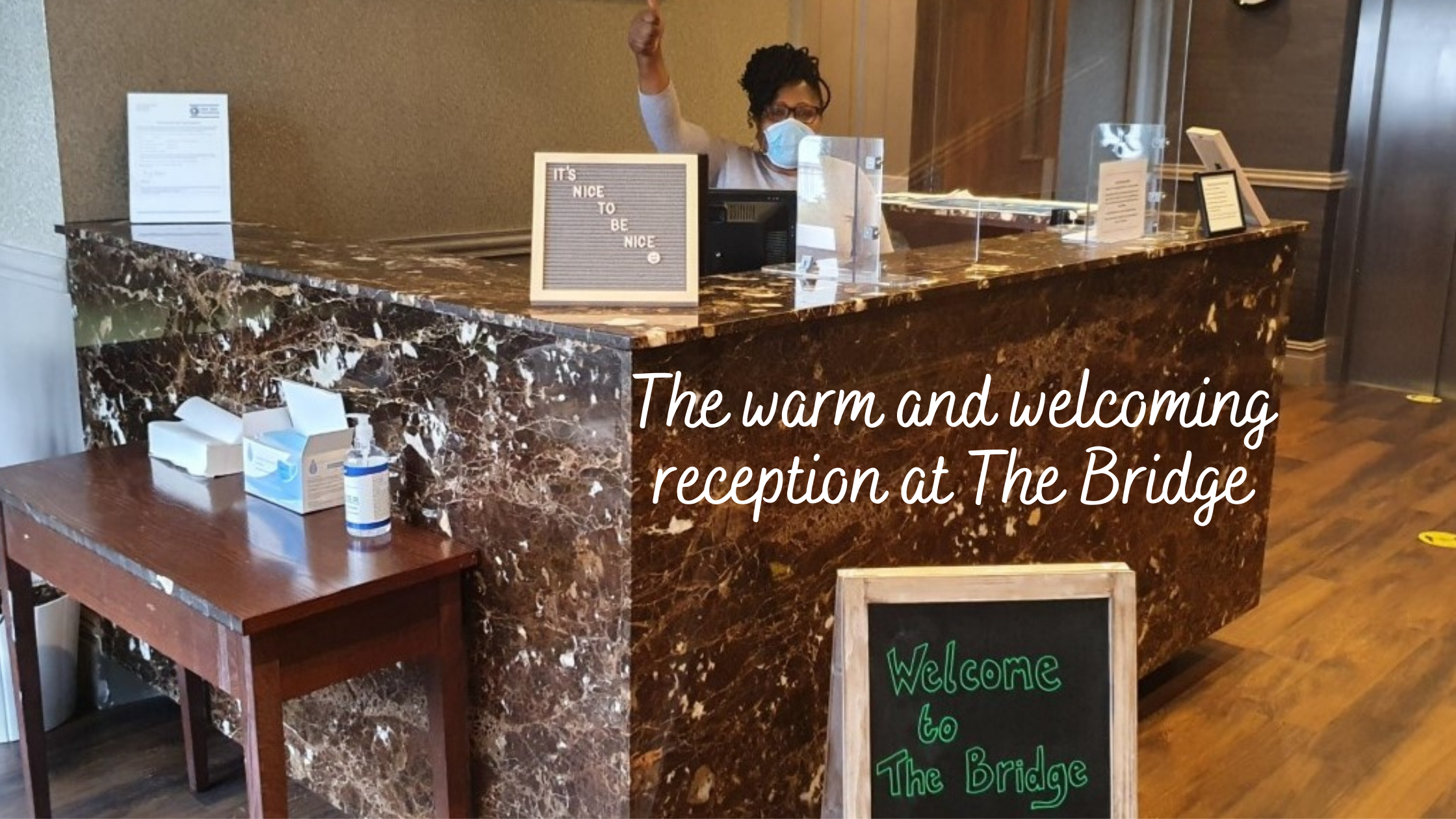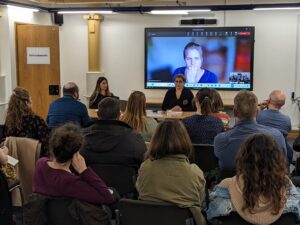
The Bridge opened its doors in October 2020 to provide a safe place to stay for people who are rough sleeping in Westminster and waiting for a permanent home. Partnerships are key to The Bridge’s approach – as are kindness and learning. We spoke to Ian Scott, Manager at The Bridge, who told us more about the service and also provided some feedback from people staying at the service.
The Bridge is run by the Connection at St Martin’s (CSTM), part-funded by Westminster Council, to provide accommodation to people waiting to move into a permanent home through the Housing First scheme. The waiting list for Housing First is long, so people need somewhere stable to stay in the meantime. The Bridge “is a hotel that bridges the gap between the streets and independence.”
What’s on offer?
The model is based on the emergency hotel accommodation provided during the ‘Everyone In’ initiative in 2020. The Bridge offers 31 rooms (currently fully occupied) in a four-star hotel, with en-suite bathrooms, cleaning services and meals prepared by CSTM and delivered to the rooms. Meeting people’s basic needs quickly is an important part of the service: “We meet people’s basic needs very fast. Drinks, snacks – they sound like small things but are actually very major.”
That’s only the start – The Bridge offers 24-hour staffing, access to healthcare, and an extensive in-reach programme (where services come into the accommodation rather than clients having to attend their offices for appointments), including a psychologist, substance-use support, language therapy, art therapy, podiatry, benefits advice and immigration support. They also provide support with accessing training (one client is currently doing a creative writing course) and finding employment.
And of course, the ultimate goal – but without pressure and in the client’s time – move on to a permanent, independent home. The Bridge sees itself as a transition service, supporting people as they move off the streets and adapt to life indoors. The Bridge is proud of its success in working with people who have experienced rough sleeping for many years: “We have a very low eviction rate. People who have been long-term homeless for 20 years are actually staying.”
The approach – psychologically-informed environments (PIE) and partnerships
Ian explained how the people accessing The Bridge have been “severely traumatised over many years,” which means that compassion, tolerance and kindness are critical to success and central to the approach. The Bridge adopts a psychologically-informed model, developing relationships with people by listening and understanding them – and working together with them to help resolve the challenges they face in moving away from street homelessness. A psychologist provides a twice-weekly in-reach service supporting clients making the transition to being inside and also providing support to staff.
Partnership working is integral to The Bridge and something that has developed out of the response to the pandemic: “Partnership working is one of the most successful things to come out of Covid-19 for us – working more closely with other organisations.” One of The Bridge’s key partners is Westminster City Council, a relationship that Ian described as “a really good partnership.” The Council works with The Bridge to create and follow up move-on plans for residents. The Homeless Health Team also provides an in-reach service at The Bridge, as well as training to staff and organising the monthly multi-disciplinary team (MDT) meetings. Other key partners include Turning Point who provide in-reach drug services. Ian explained how in-reach services improve engagement: “If services come to people, then they will access those services. It makes it easier to solve problems.”
Great Chapel Street GP are another “outstanding” partner, who attend the Bridge’s monthly MDT meetings via Zoom. Ian highlighted this as another example of learning and progress through the pandemic – the digitalisation of meetings allowing partners to attend more often and more efficiently. The regular MDT meetings bring all partners together to discuss clients and formulate plans.
Results
Overall, the Bridge offers a client-focused and holistic model of support, working in partnership with many other agencies: “Our approach is to be kind, understanding and compassionate and work with partners.” It sounds simple, but it’s changing lives – as reflected by this thought on the service from Angie, a resident at The Bridge who had been interviewed by staff:
“The way you’re treated here by the staff actually reflects really well on the staff and on their own characters and personality. It’s not just me that’s changed I’ve seen other people come in, and I’ve seen them slowly start to change too.”



